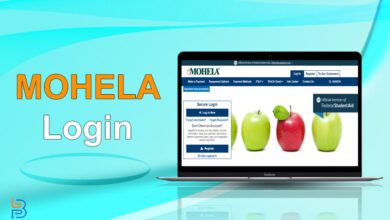Benefits of Data Science in EdTech

In recent years, the education technology (EdTech) industry has experienced a profound transformation driven by integrating data science into its core operations. Data science is an integrative field that leverages various techniques to extract insights and knowledge from data. It has emerged as a powerful tool in EdTech to revolutionize how education is delivered, monitored, and personalized. This fusion of education and technology is not just a passing trend, but it holds immense potential to reshape the landscape of learning and teaching.
In this article, we delve into the various benefits of data science in EdTech and explore how this convergence enhances education at various levels.
What is EdTEch?
EdTech is a combination of the two words”education” and “technology,” which refers to integrating innovative technological solutions in the classroom. The primary objective of EdTech is to elevate student achievements, foster personalized learning experiences, and alleviate the instructional workload on educators.
Data Science in EdTech:
The EdTech sector was experiencing steady growth, yet the advent of the COVID-19 pandemic dramatically expedited both integration and investment of educational technology in learning. This field underwent a sudden surge as a result. Data Science is a pivotal force within the EdTech realm, similar to how the internet revolutionized retail. Beyond its business implications, data science empowers EdTech enterprises to refine their products and workflows while placing students at its focal point. This empowerment manifests in two crucial aspects: firstly, by aiding students in comprehending their strengths and areas needing improvement, and secondly, by guiding them towards uncharted academic prospects.
Personalized Learning
One of the most remarkable achievements of data science in EdTech is the ability to provide personalized learning experiences. Traditional education often struggles to accommodate individual students’ diverse learning paces and styles. However, by collecting and analyzing data on students’ learning habits, strengths, weaknesses, and preferences, EdTech platforms powered by data science algorithms can create tailored learning paths for each student. These platforms can adapt in real-time, ensuring students are engaged and challenged optimally. This personalization fosters deeper understanding and long-term retention of the subject matter.
Data-Driven Decision Making
Educational institutions generate vast amounts of data, ranging from student attendance and performance to teaching methodologies and resource utilization. Data science equips educators and administrators with the tools to harness this data for informed decision-making. These institutions can identify areas for improvement, allocate resources, and implement evidence-based strategies by analyzing historical trends and patterns. Data-driven decision-making enhances the overall quality of education by addressing issues promptly and optimizing various processes.
Read Also: Strategies For Successful Digital Transformation in Education
Lifelong Learning and Upskilling
The integration of data science in EdTech extends beyond traditional educational settings. Online platforms and courses that utilize data-driven algorithms enable professionals to engage in lifelong learning and upskilling. These platforms analyze learners’ progress and preferences, recommending relevant courses and resources that align with their career goals. This approach facilitates a continuous learning process that is tailored to individual aspirations and industry demands.
Early Detection of Learning Difficulties
Not all students who face learning difficulties receive timely support. Data science can play a pivotal role in identifying struggling students early in their educational journey. Educators can intervene proactively by analyzing their performance metrics, engagement levels, and behavioral patterns to provide necessary assistance. This proactive approach prevents students from falling behind and fosters a more inclusive and supportive learning environment.
Bridging Gaps with Remote Learning
The COVID-19 pandemic underscored the importance of remote learning and highlighted the disparities in access to education. Data science can play a vital role in addressing these gaps by providing insights into students’ engagement levels, identifying potential dropouts, and tailoring remote learning experiences to individual circumstances. This technology-driven approach ensures that learning remains inclusive and effective regardless of physical location.

Real-time Feedback
Constructive feedback is essential for student growth, but timely delivery can be challenging in a classroom setting. Data science enables the generation of real-time feedback on assignments, quizzes, and projects. Students receive immediate insights into their performance, allowing them to address misconceptions promptly and make iterative improvements. This rapid feedback loop accelerates the learning process and encourages a growth mindset.
Adaptive Assessments
Traditional exams often take a one-size-fits-all approach, failing to gauge individual students’ comprehension levels accurately. Data science enables the creation of adaptive assessments that adjust the difficulty of questions based on students’ responses in real time. This ensures that assessments accurately reflect each student’s knowledge and provide actionable insights for educators to adapt their teaching methods accordingly.
Continuous Improvement of Content
Incorporating data science in EdTech enables educators and content creators to refine educational materials continually. Usage data like feedback and assessment results which can be analyzed to identify which resources are most effective and engaging for students. This iterative feedback loop leads to the development of high-quality, targeted content that aligns with the evolving needs of learners.
Enhancing Teacher Efficiency
Teachers are at the heart of education, and data science can empower them to work more efficiently. Automating tasks like grading and attendance tracking allows teachers to focus on interacting with students and creating new teaching techniques. Additionally, data-driven insights can help teachers identify struggling students and design interventions tailored to their needs.
Predictive Analytics for Student Success:
Predictive analytics, a cornerstone of data science, can be harnessed to forecast students’ future performance and behaviors. Educators can use historical data, engagement levels, and external factors to identify at-risk students who may drop out or underperform. Early intervention strategies can then be deployed to ensure these students receive the necessary support, increasing their chances of academic success.
Last Words
The infusion of data science into the realm of educational technology (EdTech) brings forth a multitude of transformative benefits. From personalized learning experiences that cater to individual strengths and weaknesses to data-driven decision-making that enhances educational processes, the impact is profound. Through data science, EdTech bridges gaps in remote learning, identifies and supports struggling students, and empowers educators to work more efficiently. This convergence enables continuous improvement of educational content and assessments, while predictive analytics ensures timely interventions for student success.






